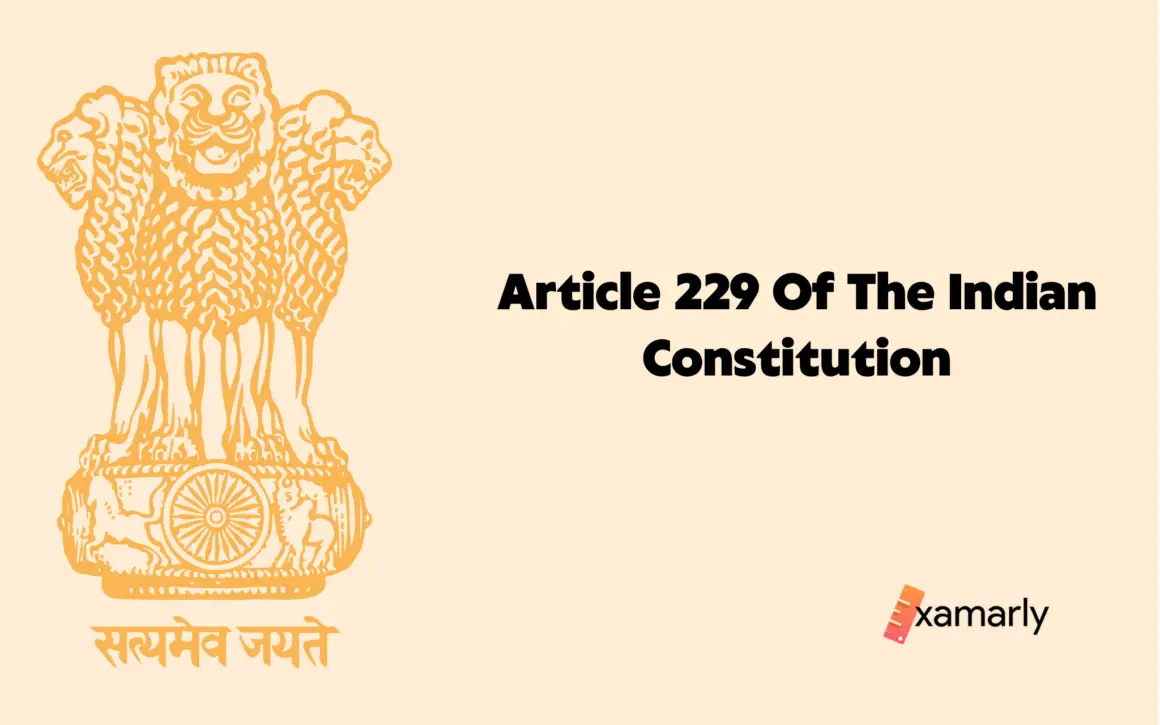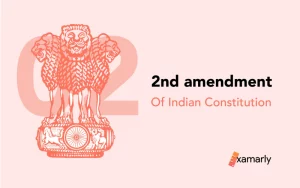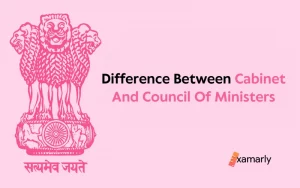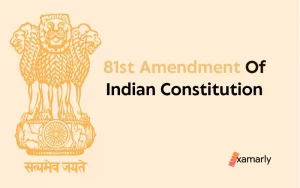Article 229 of the Indian Constitution deals with the power of the High Court to make certain appointments.
It states that a High Court may, in the exercise of its powers under Article 227 (power of superintendence over all courts by the High Court), make appointments to any office in the judicial service of a state, other than the office of a judge of the High Court, and to any civil service of the state.
Let us dig deep into Article 229 of the Indian Constitution to have a better grasp at all the concepts present in it.
Article 229 Of The Indian Constitution – In Detail
We will analyse each and every clause present in Article 229 of the Indian Constitution to have an in-depth understanding of its clause and sub-clauses.
Let us get started.
Clause 1 – As it is & Explained
229. Officers and servants and the expenses of High Courts
(1) Appointments of officers and servants of a High Court shall be made by the Chief Justice of the Court or such other Judge or officer of the Court as he may direct: Provided that the Governor of the State may by rule require that in such cases as may be specified in the rule no person not already attached to the Court shall be appointed to any office connected with the Court save after consultation with the State Public Service Commission
The first clause of Article 229 says that the Chief Justice of a High Court, or another judge or officer of the Court acting at his direction, is responsible for making appointments of its officers and servants, as stated in clause (1) below.
It also says that no one who isn’t already working for the Court can be put in charge of a position related to the Court without first talking to the State Public Service Commission unless the Governor of the State says otherwise in a rule.
Related – Article 228 Of The Indian Constitution
Clause 2 – As it is & Explained
(2) Subject to the provisions of any law made by the Legislature of the State, the conditions of service of officers and servants of a High Court shall be such as may be prescribed by rules made by the Chief Justice of the Court or by some other Judge or officer of the Court authorised by the Chief Justice to make rules for the purpose: Provided that the rules made under this clause shall, so far as they relate to salaries, allowances, leave or pensions, require the approval of the Governor of the State
The conditions of service of officers and servants of a High Court shall be such as may be prescribed by rules made by the Chief Justice of the Court or by some other Judge or officer of the Court authorised by the Chief Justice to make rules for the purpose.
But, provided that the rules made under this clause shall, in so far as they relate to salaries, allowances, leave, or pensions will require the approval of the State Legislature.
Clause 3 – As it is & Explained
(3) The administrative expenses of a High Court, including all salaries, allowacnes and pensions payable to or in respect of the officers and servants of the court, shall be charged upon the Consolidated Fund of the State, and any fees or other moneys taken by the Court shall form part of that Fund
The third clause of Article 229 of the Indian Constitution says that all the salaries, allowances, and pensions paid to or on behalf of a High Court’s officials and employees must come out of the State’s Consolidated Fund, and any fees or other money collected by the court must also be deposited there.
Summing Up
In conclusion, Article 229 of the Constitution of India empowers the High Court to make appointments to various positions in the judicial and civil services of a state.
This rule helps to make sure that the judiciary and the civil service are independent and fair, and that appointments are made in a fair and open way.
The power of the High Court to make appointments under Article 229 is an important safeguard against political interference in the judicial and civil services of a state.
It helps to ensure that the appointments are made based on merit and ability, rather than on political considerations.
Overall, Article 229 plays a crucial role in the functioning of the judiciary and the civil service in India, and helps to maintain the integrity and independence of these important institutions.






